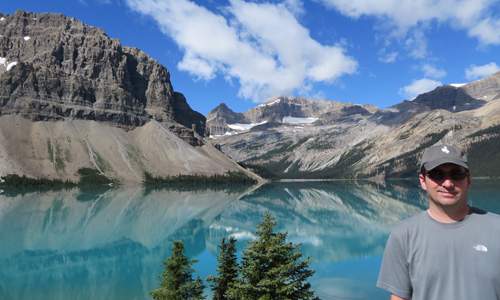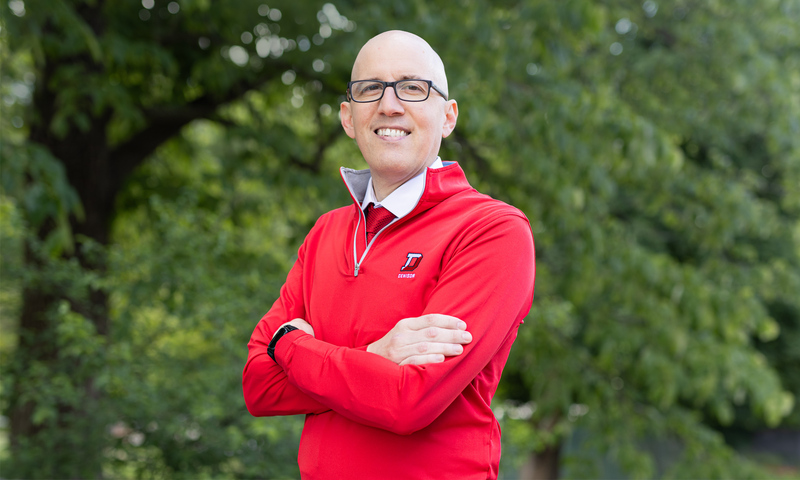In his 10th year as a professor at Denison, James Weaver straddles the bridge between technology and nature in his recent course work and research.
Dr. Weaver started at Denison in 2006. During his undergrad at Allegheny College, he majored in English with a particular interest in American literature, later attending OSU where he got his PhD. Many of the courses he has taught focus on that original interest and explore the works of authors such as Thomas Jefferson, Margaret Fuller, Henry David Thoreau, and Helen Hunt Jackson.
This year, most of his classes are environmentally oriented, from traditional literary studies to a form of cultural studies. More specifically, he’s interested in contemporary forms of travel narratives and how nature is imagined in pop culture settings. His senior seminar, “Wild Texts,” is currently working through related issues.
Much of the class’s focus has been on thruhiking narratives, the phenomenon of blogging while traversing natural wonders such as the Appalachian Trail and the Pacific Crest Trail. They began the class by examining Cheryl Strayed’s book Wild. They also looked at blogs by other, more contemporary thruhikers, one about the Appalachian Trail and one about the Continental Divide Trail. Together, those three trails are known as the Triple Crown.
“One of the things I’m primarily interested in,” Dr. Weaver says of his research and coursework, “is how, traditionally, the ‘retreat into nature narrative’ consists of severing the ties with a community, going forth, having the experience, and then coming back to report it. Now, there’s always a connection. It’s almost required to capture it in a digital medium.”
This phenomenon has manifested itself in other ways as well, such as a plethora of reality TV shows including Running Wild with Bear Grylls, Fat Guys in the Woods, additional technologies like the GoPro (a first person recorder), and obstacle courses such as Tough Mudder. These manifestations are set up as authentic, natural experiences, and yet, despite appearances, they are artificial and totally contrived.
“The question is: what sort of raw, visceral, animalistic experience is being satisfied by that,” Dr. Weaver asks. Though this research appears to be heavily immersed in contemporary cultural studies, he also wants to explore the differences and similarities between nineteenth century and pop culture returns to nature. From what he’s seen so far, it does not appear to be a sharp, clean break, but instead a ragged and messy continuation.
In Spring, 2016, Professor Weaver will be teaching “Nature and Literary Imagination” (ENGL 291/ENVS 291), a study of humanity’s relationship with and shifting conceptions of the nonhuman world, and “Nature’s Nation” (ENGL 368/ENVS 290), an exploration of the ways nineteenth century American authors represent authors represent wilderness landscape.

